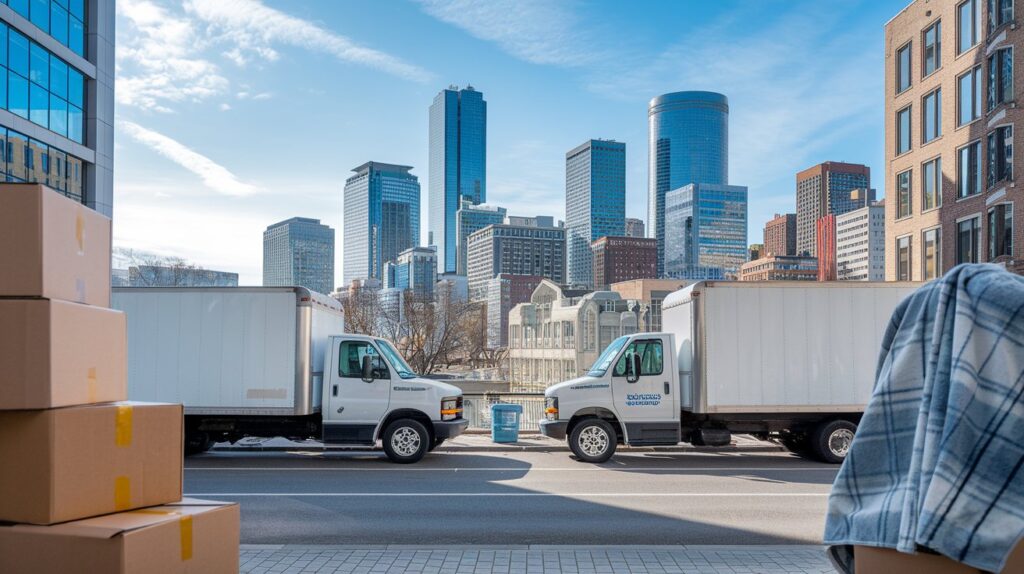Moving in Boston is one of those things that seems way more dramatic in your head than it actually is – until you’re standing in the middle of Beacon Hill with a couch and no place to park. I’ve moved here a few times and learned the hard lessons so you don’t have to. Below are the practical, no-fluff things I wish someone had told me before my first city move.
Understanding Boston’s Moving Season & Timing
The busiest time is late August through early September. College students, lease turnovers, and people trying to avoid summer heat all collide.
Booking early is one of the easiest things you can do as an adult. Try to avoid that window if you can. If you can’t, book a mover way in advance and be flexible on time. If you move in winter or mid-week, you’ll find better availability. Mornings are golden: start early and beat some traffic. Many Boston Movers recommend booking ahead during peak season, so don’t procrastinate if you’re on a tight moving timeline.
Parking Permits & Building Access in Boston
This is the part people underestimate: parking. Boston streets are tight. The city offers one-day moving permits – usually worth the $110 for peace of mind. A reserved spot means your crew can unload without circling for ages.
Talk to your building manager. Many older buildings don’t have service elevators or elevators that are too narrow for certain furniture. Sometimes you’ll need to coordinate a time the elevator is free or reserve the loading dock. Your movers – especially good ones – will help you figure this out, but it doesn’t hurt to call ahead and not assume anything. Good Boston Movers will ask these questions before the truck shows up.
How to Budget for Your First Move in the City
Let’s talk money without the awkwardness. For a typical local move in Boston, expect roughly $140-$180 an hour for a two-person crew and a truck. That’s a ballpark – the real cost depends on how many movers you need, how tricky the building is, and whether packing services are involved.
Factor in extras: moving permits, packing materials, and tipping the crew (a few bucks per person per hour or a flat $20-$50 per mover is common). Some companies include better protection for your stuff at no extra charge that’s a big deal if you’ve got sentimental or expensive items. When you get quotes, ask about value protection and what limits apply – it’s an easy conversation that can save you stress later.
Packing Essentials for Boston Apartments
Pack like the people carrying the boxes are humans (because they are). Use sturdy boxes and don’t overstuff them. Heavy items go in small boxes label clearly so you can find essential things on night one. You’ll thank yourself when you’re hunting for a coffee mug.
If your schedule’s tight, consider full packing services. It costs more, yes, but professionals pack faster and usually better: fragile items wrapped, wardrobes transferred carefully, everything stacked to maximize truck space. If you’re doing it solo, start early and keep an “essentials” bag – pajamas, chargers, basic toiletries, a couple of plates and utensils. First-night survival kit: priceless. And if you’re unsure, ask the Boston Movers for packing tips – they see it all.
Choosing the Best Moving Option for Your Needs
There isn’t one right answer. If you’re a student with a futon and a bookshelf, renting a small van with friends might be fine. If you’ve got a 2-3 bedroom place or fragile stuff, hiring pros is usually worth the money – they know the city, the tricky turns, and how to get a couch through a weird doorway.
Read reviews and call around – ask a couple of Boston Movers for quotes. The ones that answer with patience and clarity are usually the ones you want. A reliable local crew can do more than just carry boxes they’ll help you navigate permits and building rules and will make the whole day feel manageable instead of chaotic. For me, hiring experienced Boston Movers was the difference between a move I remember fondly and one I’d rather forget.
Final Thoughts
Moving in Boston isn’t mystical – it’s just a little more logistical than suburban moves. Book early, sort out parking, budget for the right crew, and pack sensibly. Do those things and your move will go from “ugh” to “not bad at all.” If you find yourself staring at a couch on a narrow street, take a deep breath – help is usually nearby.
When you’re comparing companies, look for transparency and clear communication. That’s why so many folks recommend local Boston Movers who’ve done this a thousand times – they bring patience, speed, and a little local know-how that makes moving day feel human, not heroic.

